- Home
- B. V. Larson
Annihilation (Star Force Series)
Annihilation (Star Force Series) Read online
Books by B. V. Larson:
STAR FORCE SERIES
Swarm
Extinction
Rebellion
Conquest
Empire
Annihilation
IMPERIUM SERIES
Mech Zero: The Dominant
Mech 1: The Parent
Mech 2: The Savant
Mech 3: The Empress
Five By Five (Mech Novella)
OTHER SF BOOKS
Element-X
Technomancer
The Bone Triangle
Z-World
Velocity
Visit BVLarson.com for more information.
Annihilation
(Star Force Series #7)
by
B. V. Larson
Copyright © 2013 by the author.
This book is a work of fiction. Names, characters, places and incidents are either products of the author’s imagination or used fictitiously. Any resemblance to actual events, locales or persons, living or dead, is entirely coincidental. All rights reserved. No part of this publication can be reproduced or transmitted in any form or by any means, without permission in writing from the author.
-1-
The day the Macros came back into our tiny slice of the universe I wasn’t ready for them. I thought I’d prepared for everything they could do—for any contingency, but I was wrong.
By Earthly calendars it was a Thursday night, the end of the first day of May. That was a detail which shouldn’t have mattered at all, since I now lived in the Eden star system. But it did matter to me. I missed May, and springtime, and all the lost traditions from my old life.
I stood on a high battlement atop a spire of rock on Eden-8. It was one of the highest peaks on the planet. I’d built an impressive fortress up here, which clutched the granite pinnacle of the mountain and wrapped around it like a coiled snake. I’d named the fortress “Shadowguard”.
Of the three worlds the Centaurs had ceded to humanity, Eden-8 was the farthest from the central star. Compared to the hotter worlds of Eden-6 and Eden-7, the planet was relatively cool. In comparison to Earth it was a warm world, ranging from steaming jungles at the equator to balmy temperate zones around the poles.
Eden-8 orbited its yellowy star very evenly. The planet had less than a one-degree tilt to its axis and it didn’t wobble much. Earth’s six degree tilt gave her four seasons, but here on Eden-8, there were only two and they were practically indistinguishable from one another. As a result, there wasn’t really a summer or a winter. It rained a little more one half of the year than it did during the other, but a newcomer would barely notice the difference.
Besides the lack of seasons, the most noticeable thing about the terrain was the vast carpet of forestlands. We had real trees here. They were over a thousand feet tall in places. Even Earth’s great redwoods didn’t compare.
On the biggest continent in the southern hemisphere, I’d built my fortress in the middle of a forest of the largest trees. Shadowguard perched on a pinnacle of rock overlooking a sea of trees. It served as a communications relay station and garrison headquarters for the inner habitable worlds, but that was only part of the reason I’d placed it here.
I’d chosen my new headquarters because I liked it up here on top of this pleasant world. The view was spectacular, even at night. More importantly, at this altitude, it was always cool and often cold. There were very few spots on the three planets owned by humanity in this system that could make that claim.
Building on this site had been expensive in terms of resource allocation—we no longer thought in terms of dollars when constructing things. With the amazing factories we’d captured from the Nanos and their lumbering cousins the Macros, we were able to produce anything we wished given enough time and materials. Thus, when I calculated expenses, I did so by tallying the number of hours a given factory had to work to churn out whatever it was I needed. Combined with the number of human and robotic subsystems that had to be committed to do the assembly and the gathering of the necessary raw components, I arrived at the final cost.
Building Shadowguard had required a staggering number of hours of effort, numbering in the thousands. To lower the production burden on systems that could be better used building ships, I’d employed my idle crews. I’d ordered them to participate in lengthy exercises that amounted to fetch-and-carry missions. Every garrison ship equipped with a segmented arm had flown countless missions, ferrying modular structures up to the mountaintop one at a time. This effort had reduced the strain on the worker machines, but the project had still taken more production than it was really worth.
When it was finished, however, I found myself pleased with the results. I’d built a retreat that pierced the clouds and enclosed some thirty thousand square feet of space—not including the exposed ramparts that served as balconies around most of the chambers.
It was on those lofty turrets that I found myself pacing tonight. Darkness shrouded Eden-8, and at this altitude, the nights frosted everything with a glaze of ice. Fortunately, my various physical alterations made the environment comfortable for me.
“Why did you build this place, Kyle?” Sandra asked.
I glanced around, but didn’t see her. After a moment, I stopped trying. She was somewhere nearby, that was nothing unusual. She almost always was. She was my guardian angel—or perhaps I should say, my guardian creature. She wasn’t entirely human, and she wasn’t exactly an angel.
“Don’t you like it here?” I asked.
“I love it,” she said.
“That’s why then. I built it for you, out of love.”
“Bullshit.”
I smiled. “Where the hell are you, anyway?”
There was a swirl of movement. I flinched as she jumped down beside me from the conical, snow-crusted roof of a nearby tower. It must have been a thirty foot leap down, and Eden-8 had a goodly twenty-one percent higher gravity than Earth, but she landed neatly. I only heard a tiny, audible grunt out of her.
She smiled at me in triumph, but her face fell as I skipped back in alarm. A shower of snow had followed her down from the roof. It splashed on her back and hair a moment later. She sputtered and brushed at the snow.
I stepped forward and helped her remove fine, white granules of ice from her suit and hair. We kissed and smiled at each other. Then we both laughed.
“This is a romantic place,” Sandra admitted.
I turned away and walked to the crenulated walls. The parapets circling Shadowguard’s battlements had a very medieval look to them, which was by design. The walls resembled the jaws of a predator with lines of big, square teeth. I leaned on one of these granite teeth, gazing down at the night world below.
It was twenty-one thousand feet to the bottom, and it looked twice that far. The forests were shrouded in darkness at the base of the cliffs. The sky was a span of velvet blue above, dotted with diamond-white stars. The starlight wasn’t enough for my eyes to see much detail in the lands spread out below me. The planet had no moons, and that made the nights darker than they were on most worlds.
Eden-8 was the most heavily inhabited of the star system’s worlds—at least the most thickly inhabited by humans. But by Earth standards it was practically empty. There were a few pinpoints of white light down there, dotting the landscape. The lights marked small farms and colonial ranches, places where we’d managed to clear glades from the giant forests. Lands had been granted by Star Force to enterprising families who’d sworn to build their homes and have their children here. As of our last monthly online census, there were over twelve thousand registered humans on the planet.
I scooped up some snow and crushed it into a ball in my hand. I loo
ked at Sandra. She eyed me warily. We’d had plenty of snowball fights in the past. When you have bodies full of nanites, upgraded by biochemical edits, hurling snowballs could be serious business.
I held up the snowball. “This is why I built up here. I wanted something humanity will be forever denied in the Eden system. A truly cold place to live.”
She nodded. “That’s a good reason,” she said. “I believe that one. You’ve always liked the winter.”
I hurled the snowball over the walls. After years of enhancements, I’ve got a good arm on me and I doubt any baseball player in all history could have pitched it farther. The snowball flew away into the night like a streak of white. Finally, gravity took hold and it began a long slow lob that turned into a hurtling drop. Seconds later it was sucked down in the darkness below us and vanished from sight. Sandra leapt up onto one of the square merlons and perched there on the edge, watching it fall.
“I can still see it,” she said. “It might make it all the way to the trees.”
I stared, but my eyes weren’t much better than the ones I’d been born with. For me, the darkness had swallowed up the falling ball of whipped ice.
“It’s May back on Earth, you know,” I said. “I miss having seasons. Now I can experience winter any time I want, just by coming up here.”
She still crouched on the wall, staring down into the darkness intently.
“Don’t tell me you can still see that ice-ball,” I said.
She put up a flat hand to shush me. She shook her head. “Didn’t make it,” she said. “It hit a spur of rock about two thirds of the way down.”
“Too bad.”
She looked at me. “It’s not the seasons you miss, Kyle. It’s Earth itself. I doubt we’ll ever be completely at ease here. I mean, it’s a lovely world and all, but it will never be home.”
“I don’t know… People have migrated before. We’ve done it for a thousand generations.”
“Yes, but never to a brand new planet. There are things in our genes, in our instincts, that can’t be adjusted. The length of our days and nights, for example. I’m finding these fourteen hour cycles to be annoyingly short.”
I had to agree with her there. Seven hours of daylight were always followed by seven hours of night. Many of us were having trouble adjusting our sleep patterns. I frowned suddenly, disliking the melancholy turn of the conversation.
“Listen to us!” I shouted. “Such defeatism. We’ll see home again.”
Sandra’s face tightened. She nodded her head, but looked away.
“What?” I demanded.
“I don’t know. If we do go back—we’ll bring war. I can’t imagine any other way it will happen now. I don’t want to burn down half of Earth just for our comfort.”
“Doesn’t have to go that way. There are always factions when someone makes a power grab. Maybe they’ll rise up and kick Crow off the throne. Maybe he’ll have a heart attack, or choke on a barbecued shrimp.”
This last comment finally made her laugh and broke her somber mood.
“Okay,” she said. “What are we going to call this palace of yours?”
“It’s not exactly a palace…”
“Oh, come on. Of course it is. I bet Crow has seven of them by now. Don’t be shy! What do you want to call your first one?”
I felt uncomfortable with the subject, but forced a smile. “I’ve already decided,” I said. “I’m going to call it Shadowguard.”
“Why?”
“Because it will help prevent our enemies from sneaking up on us, hopefully.”
She blinked at me.
I shrugged. “It’s not just a vacation spot, you know. It serves a military purpose. There’s a lot of equipment on this rock, including the best sensor array in all six of the known star systems.”
“Show me,” she said.
Smiling, I offered her my arm. She clasped it formally and we walked together down the icy granite steps to a portal. Like all the doors in the fortress, this one was made of smart metal. It sensed us, identified us and dissolved to let us in. The opening yawned and warmth gusted up into our faces.
A single operator was on duty. The operator was a young lieutenant who looked up shyly as we approached. Almost apologetically, she lifted a tablet and waved it slightly, trying to gain my attention.
“What’s this?” I asked, taking it from her.
“Something relayed from Welter Station, sir,” she said.
I frowned. “This isn’t the standard daily report. Any hostile activity should have been reported to me immediately.”
The young woman’s face registered alarm. “I’m sorry, Colonel. But it isn’t about hostile action. It’s labeled as a diplomatic message.”
My frown deepened. I swiped a finger over the screen, passing the opening bullshit on the first pages. How was it that bureaucracy always snuck into any organization? Already, there were three pages of dates and details on every report and document that came to me. The reports seemed to grow fatter and less informative by the month.
The first useful section dealt with unusual readings—mostly from Eden-12, the homeworld of the Blues. That was nothing new. There had always been unusual readings coming from that gas giant, which was inhabited by enigmatic beings. Today there had been large energy releases of unknown origin. I rolled my eyes. After all, it was a gas giant. Huge storms rolled across it every day. Some of my people needed to take a course in basic astronomy.
Finally, on page twenty-seven, I reached the heart of the matter. I read it quickly, then gave the device back to the lieutenant.
“Well?” asked Sandra. “Who’s it from?”
“The Crustaceans,” I said.
Sandra gave a callous bark of laughter. “Oh, those lovable bastards? What kind of love-note did they send you? Are they sending us a big wooden horse this time?”
I shook my head. “No. They’re asking for help. They say they’re under attack, and are requesting any aid we can spare.”
Sandra looked at me, and her smile faded. I knew in an instant what was going on in her mind. It was the same dilemma that raged in mine: should we help our enemies? They’d sided with the Macros in the last conflict, and done us grievous harm. But I had to admit, I still held out some sympathy for the arrogant shellfish. After all, hadn’t I committed Earth troops to serving under the Macros when we’d faced extinction? I’d attacked the Worms, exactly as they’d attacked us. We’d fought with the Worms, but in the end they were alive and the machines that had attacked Helios weren’t.
“They are biotics,” I said. “Maybe this is a chance to mend fences with them. Maybe they’ve finally realized the machines will never let them coexist in peace. We can always use another ally.”
“But we can’t trust them,” Sandra said. “It could all be a trick. Another ruse like the last one. Designed to get us to lower our guard and help the machines destroy us.”
“I know,” I said, “and I agree that we’ll have to proceed cautiously.”
Sandra turned her attention to the star map in the holotank in the center of the room. She reached out her hand and tapped the controls. The holotank shimmered in response and brought up a detailed three dimensional image depicting the Crustacean home system, which was one jump from Eden. We’d named the F-class star “Thor”.
All told, we’d discovered six connected systems. Thor was at our end of the chain of star systems, the last system we’d discovered beyond Eden.
The Thor system consisted of three gas giants and a load of other airless rocky worlds. The central binary stars were tight tag-team, an F class white star and a tiny red dwarf. I’d named the big one Thor and the smaller sun Loki.
We called our closest hostile neighbors Crustaceans, but really they were alien beings that resembled giant, man-sized lobsters. They came from three water-moons that orbited the innermost gas giant.
“What else does the report say?” Sandra asked. “Are there Macro ships orbiting their worlds?”
“No.”
“No signs of conflict? What kind of trouble can they be in?”
“Nothing that we can see from space,” I said, working the tablet. “But there are strange sensor readings from their moons, particularly Yale. Seismic spikes—explosions, possibly. And the oceans…the temperature of the water is rising. They’ve risen one-point-one degrees over the last few days.”
“One degree?” Sandra asked. “Big deal.”
I began to pace.
“I’ve learned a little about planetary climates and geology over the last few years,” I said. “A one degree change in a volume of water that great is very significant over such a short period of time. It means a huge amount of energy has been released.”
Sandra zoomed in on the gas giant that dominated the sky for every Crustacean. It was bluish in color, like the Solar System’s Neptune. The gas giant itself wasn’t inhabited as far as we could tell, but it was in the zone that supported liquid water. Circling that world were several water-moons, the homeworlds of the Crustaceans. Each of these moons was comparable in size to Earth and covered by oceans.
Sandra and I both stared at the planetary system in the holotank. I knew she was thinking the same thing I was: What the hell was going on out there?
“You’re going to fly us out there,” Sandra said to me. “You’re going to risk Star Force lives to save Lobsters, aren’t you?”
“Yes,” I said. “I think I am.”
“They don’t deserve it, Kyle.”
“You’re probably right. But I have to try to make peace with them.”
Sandra muttered something else, but I didn’t hear her. I’d already left the warmth of the command center and walked out onto the battlements again. The frosty winds were stronger now, as it was nearing midnight. The wind felt good against my skin.
Rather than gazing down onto the night-shrouded treetops below me, I turned my eyes upward into the sky. Above me hung the droplets of fire we call stars. They appeared ice-cold to me tonight, and I saw them as my ancestors must have. They were like the staring eyes of a thousand gods.

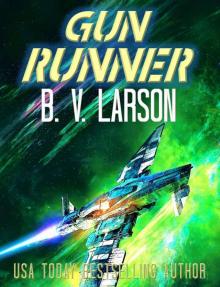 Gun Runner
Gun Runner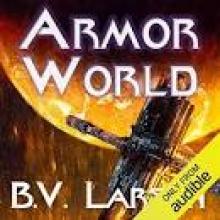 Armor World
Armor World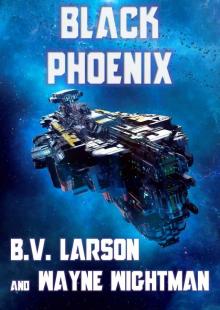 Black Phoenix
Black Phoenix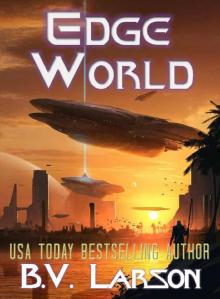 Edge World (Undying Mercenaries Series Book 14)
Edge World (Undying Mercenaries Series Book 14)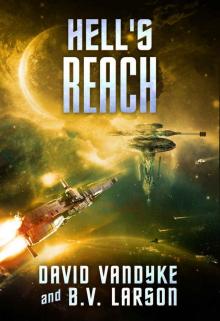 Hell's Reach (Galactic Liberation Series Book 6)
Hell's Reach (Galactic Liberation Series Book 6)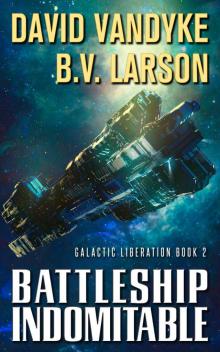 Battleship Indomitable
Battleship Indomitable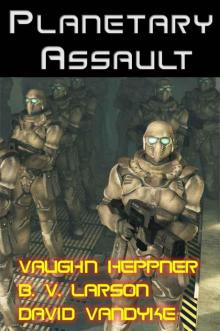 Planetary Assault (Star Force Series)
Planetary Assault (Star Force Series)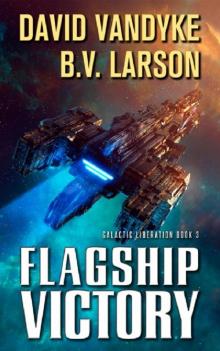 Flagship Victory (Galactic Liberation Book 3)
Flagship Victory (Galactic Liberation Book 3)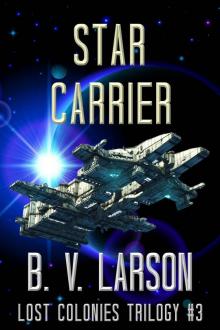 Star Carrier (Lost Colonies Trilogy Book 3)
Star Carrier (Lost Colonies Trilogy Book 3)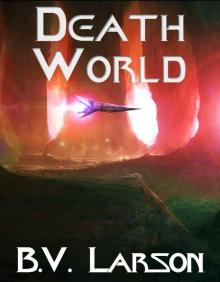 Death World (Undying Mercenaries Series Book 5)
Death World (Undying Mercenaries Series Book 5)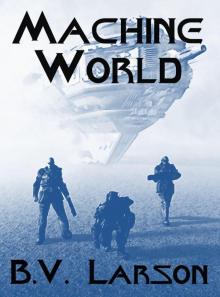 Machine World (Undying Mercenaries Book 4)
Machine World (Undying Mercenaries Book 4) Mech 2
Mech 2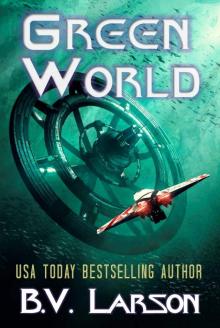 Green World
Green World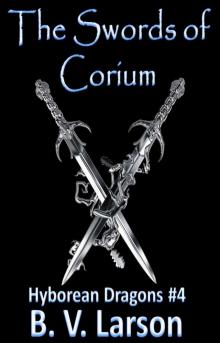 The Swords of Corium
The Swords of Corium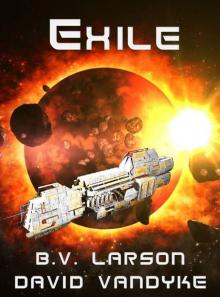 Star Force 11: Exile
Star Force 11: Exile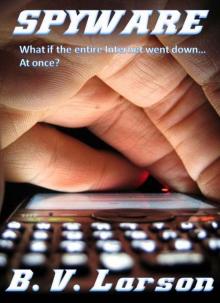 SPYWARE BOOK
SPYWARE BOOK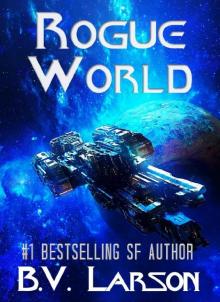 Rogue World (Undying Mercenaries Series Book 7)
Rogue World (Undying Mercenaries Series Book 7)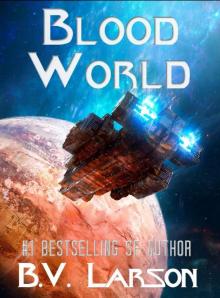 Blood World (Undying Mercenaries Series Book 8)
Blood World (Undying Mercenaries Series Book 8)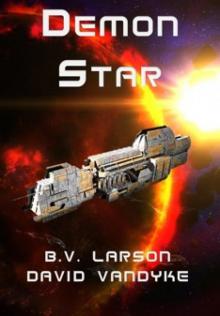 Demon Star
Demon Star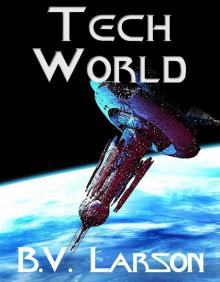 Tech World (Undying Mercenaries Series)
Tech World (Undying Mercenaries Series)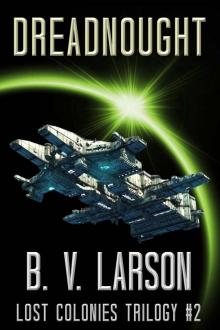 Dreadnought (Lost Colonies Trilogy Book 2)
Dreadnought (Lost Colonies Trilogy Book 2) Shifting
Shifting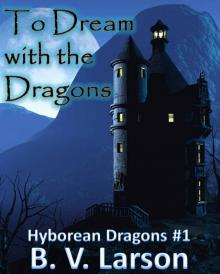 To Dream with the Dragons (Hyborean Dragons)
To Dream with the Dragons (Hyborean Dragons)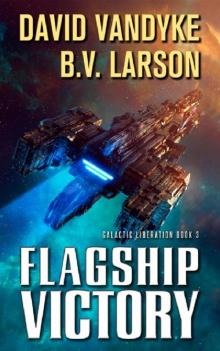 Flagship Victory
Flagship Victory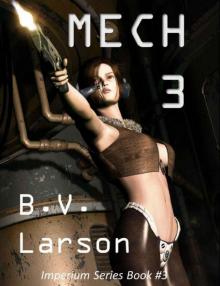 Mech 3: The Empress
Mech 3: The Empress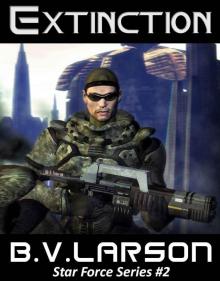 Extinction Ebook Full
Extinction Ebook Full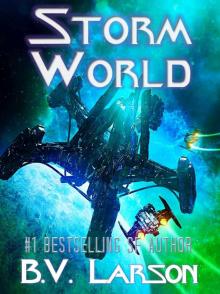 Storm World (Undying Mercenaries Series Book 10)
Storm World (Undying Mercenaries Series Book 10)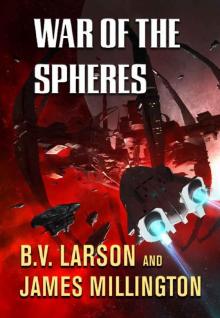 War of the Spheres
War of the Spheres MECH EBOOK
MECH EBOOK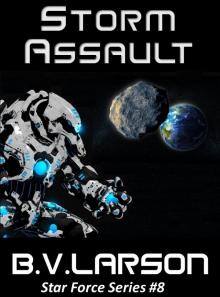 Storm Assault (Star Force Series)
Storm Assault (Star Force Series)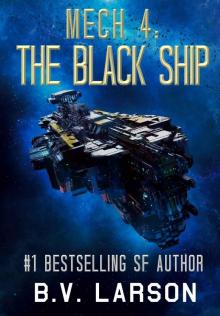 Mech 4: The Black Ship (Imperium Series Book 5)
Mech 4: The Black Ship (Imperium Series Book 5) Technomancer
Technomancer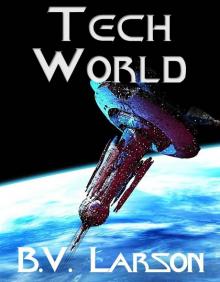 Tech World
Tech World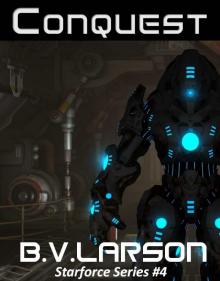 Conquest (Star Force Series)
Conquest (Star Force Series)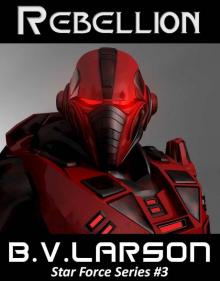 Rebellion sf-3
Rebellion sf-3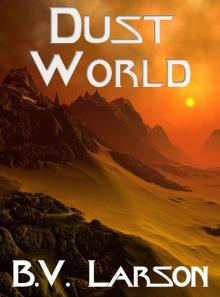 Dust World
Dust World The Dragon Wicked
The Dragon Wicked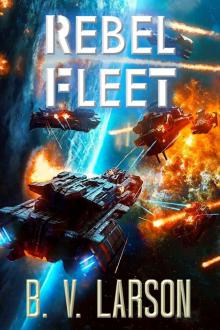 Rebel Fleet
Rebel Fleet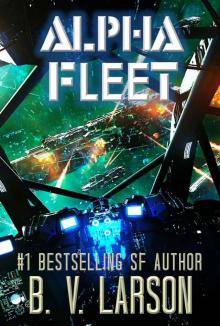 Alpha Fleet (Rebel Fleet Series Book 3)
Alpha Fleet (Rebel Fleet Series Book 3)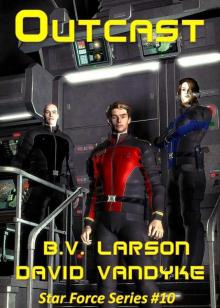 Star Force 10: Outcast
Star Force 10: Outcast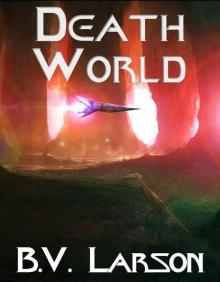 Death World
Death World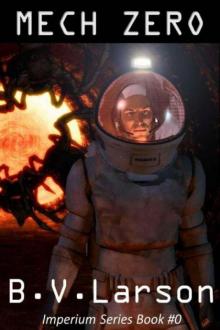 Mech Zero: The Dominant
Mech Zero: The Dominant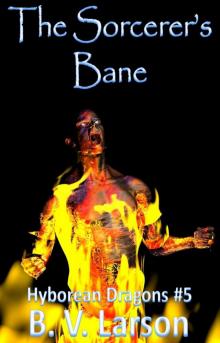 The Sorcerer's Bane
The Sorcerer's Bane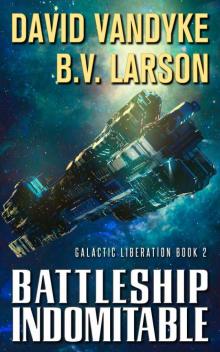 Battleship Indomitable (Galactic Liberation Book 2)
Battleship Indomitable (Galactic Liberation Book 2)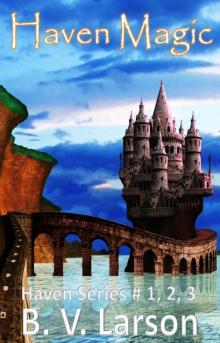 Haven Magic
Haven Magic Amber Magic (Haven Series #1)
Amber Magic (Haven Series #1)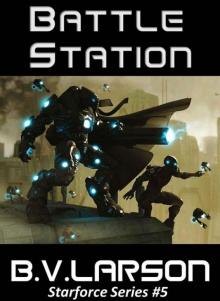 Battle Station sf-5
Battle Station sf-5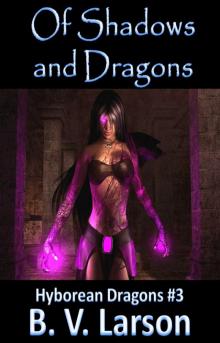 Of Shadows and Dragons
Of Shadows and Dragons Starfire
Starfire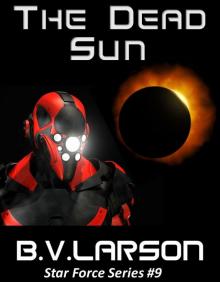 The Dead Sun (Star Force Series)
The Dead Sun (Star Force Series)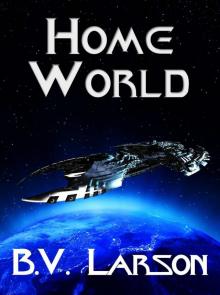 Home World (Undying Mercenaries Series Book 6)
Home World (Undying Mercenaries Series Book 6)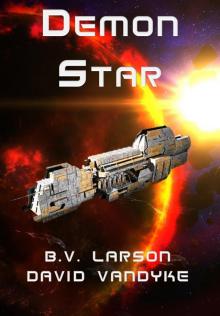 Star Force 12 Demon Star
Star Force 12 Demon Star Dream Magic
Dream Magic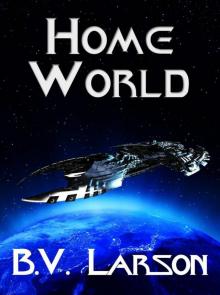 Home World
Home World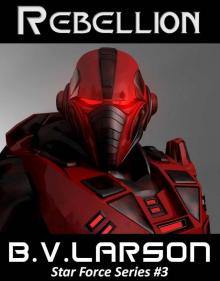 Rebellion Ebook Full
Rebellion Ebook Full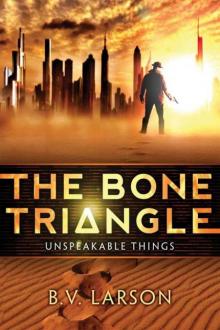 The Bone Triangle
The Bone Triangle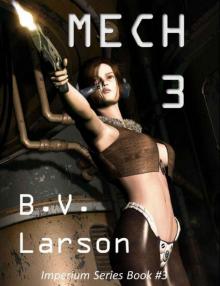 The Empress i-3
The Empress i-3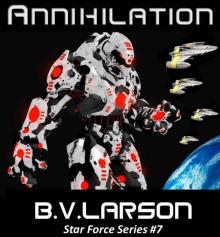 Annihilation (Star Force Series)
Annihilation (Star Force Series)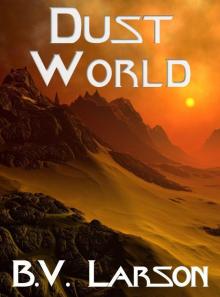 Undying Mercenaries 2: Dust World
Undying Mercenaries 2: Dust World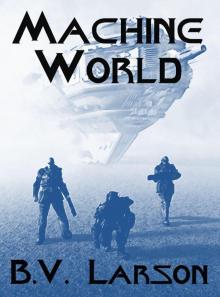 Machine World
Machine World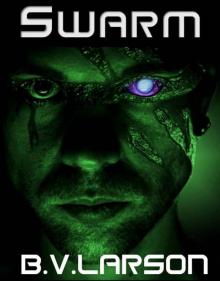 Swarm
Swarm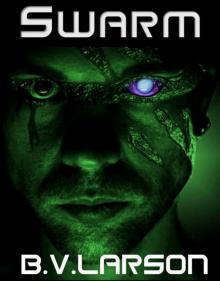 Swarm sf-1
Swarm sf-1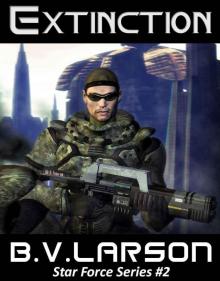 Extinction sf-2
Extinction sf-2 Amber Magic h-1
Amber Magic h-1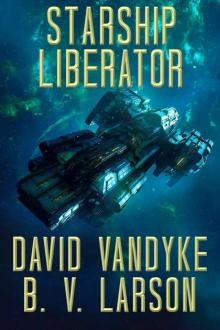 Starship Liberator
Starship Liberator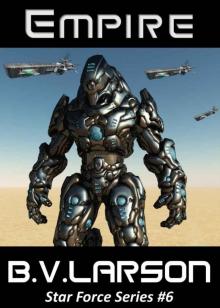 Empire Ebook Full
Empire Ebook Full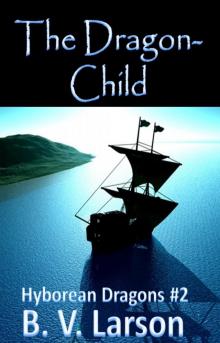 The Dragon-Child
The Dragon-Child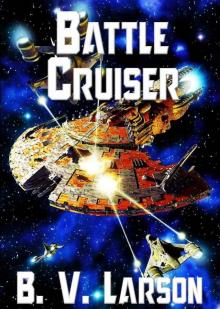 Battle Cruiser
Battle Cruiser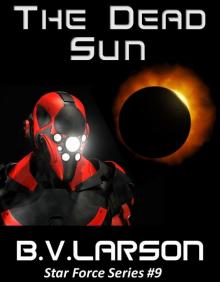 The Dead Sun
The Dead Sun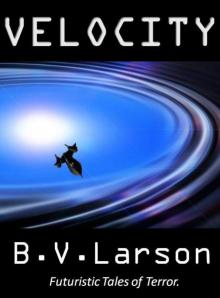 Velocity
Velocity Creatures
Creatures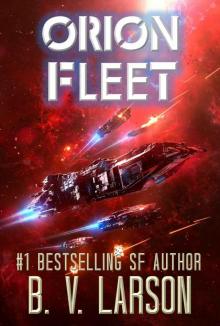 Orion Fleet (Rebel Fleet Series Book 2)
Orion Fleet (Rebel Fleet Series Book 2)